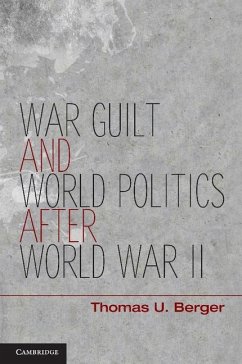When do states choose to adopt a penitent stance towards the past? When do they choose to offer apologies for historical misdeeds, offer compensation for their victims and incorporate the darker sides of history into their textbooks, public monuments and museums? When do they choose not to do so? And what are the political consequences of how states portray the past? This book pursues these questions by examining how governments in post-1945 Austria, Germany and Japan have wrestled with the difficult legacy of the Second World War and the impact of their policies on regional politics in Europe and Asia. The book argues that states can reconcile over historical issues, but to do so requires greater political will and imposes greater costs than is commonly realized. At the same time, in an increasingly interdependent world, failure to do so can have a profoundly disruptive effect on regional relations and feed dangerous geopolitical tensions.
Dieser Download kann aus rechtlichen Gründen nur mit Rechnungsadresse in A, B, BG, CY, CZ, D, DK, EW, E, FIN, F, GR, HR, H, IRL, I, LT, L, LR, M, NL, PL, P, R, S, SLO, SK ausgeliefert werden.









